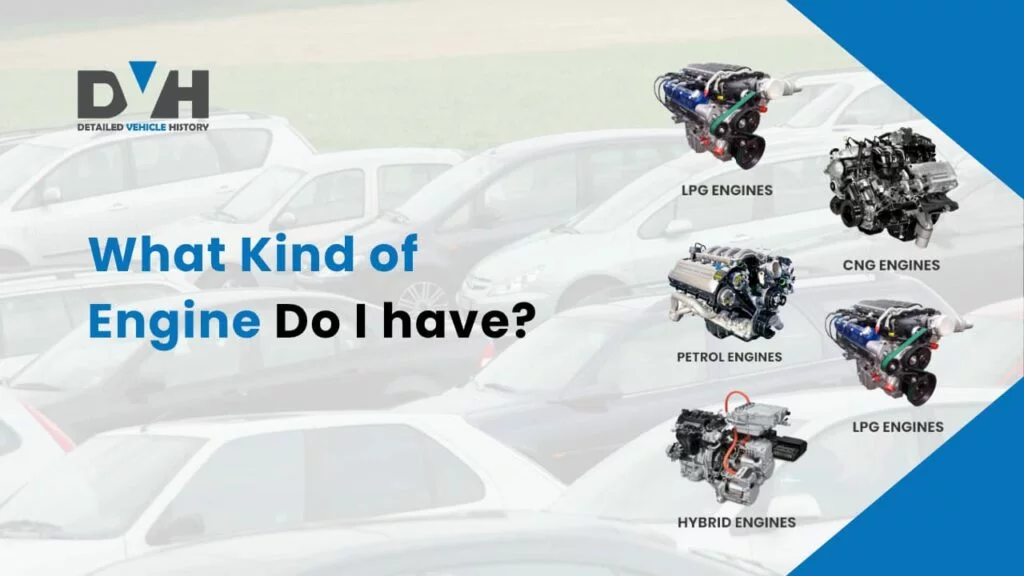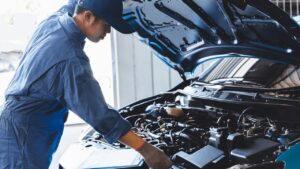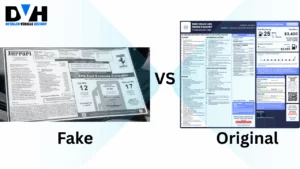The easiest way to know what engine you have is by checking the VIN (Vehicle Identification Number) to obtain the vehicle window sticker.
The engine information is vital enough to directly affect your car’s performance, the costs of maintaining it, and how the car responds to you in terms of its handling and use down the road.
Interested in knowing your car’s horsepower or torque or any engine-related info? Then let’s rev up the engine on this exciting journey.
Why You Need to Know Your Engine Type
Knowing what engine your car has offers several advantages: It is primarily useful for engine maintenance and repairs. If you know your engine type, it will be easy to get the right parts instead of the wrong kind, which can be very expensive.
Knowing your car’s engine is also valuable when assessing the performance of your car. Car engines vary in horsepower, torque, and fuel efficiency. Knowing your engine puts you in a better position to know how your car will behave in a given situation on the road.
Furthermore, if you want to modify or make a total overhaul of your car, it is essential to know what engine it has. Some modifications can only be fitted to some engine models, and having this information allows you to make the right decision.
Additionally, understanding your engine type means you can communicate better and with understanding with your mechanic.
READ ALSO: Can Too Much Oil Cause My Car Engine to Knock?
Finding Your Car’s Engine Size and Information
If you are eager to find out what type of engine is installed on your car, the first step is to decode the VIN. This will help verify the vehicle specs and provide some basic engine details like cylinder.
For a detailed engine information, lookup the car window sticker by VIN.
You can find the VIN by checking the following places:
- The dashboard, near the windshield on the driver’s side.
- Inside the driver’s side door frame.
- On the engine block or chassis
- On the vehicle registration and insurance documents
- Boot area
- Under the bonnet
- In the owner’s manual.
This method is simple and fast, allowing you to find out the details you require about your car’s engine.
Decoding the 8th Character of the 17-digit VIN
If you want to manually check your engine type based on the VIN, paying attention to the 8th character is necessary – the Engine Number. This character indicates the make and model of the car; it may consist of a number or a letter. Here is a rough idea of what the 8th characters signify:
| Eight Character of the VIN | Engine Type |
| 1 | 1.0L 3-cylinder |
| 2 | 2.0L 4-cylinder |
| 3 | 3.0l 6-cylinder |
| A | 1.5L 4-cylinder Turbocharged |
| B | 2.5L 5-cylinder Turbocharged |
| C | 3.5L V6 |
| D | 4.0L V8 |
Alternatively, use a reliable free VIN decoder to instantly provide the engine type.
It is also important to note that these are just some examples, and the meaning of VIN character can differ from manufacturer to manufacturer.
Owner’s Manual or Ask a Mechanic
Another simple way to determine the engine type of your car is to refer to the owner’s manual or ask your mechanic.
The manual generally contains information about your automobile and may include information on the type of engine used. If you have your owner’s manual, turn to the “Specifications” or “Engine Information” sections to learn the engine’s size, configuration, and other facts.
Look Under the Hood
You can get the original engine information and serial number through your car by looking underneath the bonnet.
Almost every car comes with a tag or badge underneath the hood or directly on the engine that provides information about the type of engine, its displacement, and sometimes, its horsepower.
These labels are typically installed in conspicuous positions and can be plainly seen when the hood is opened. This information can usually be found near the radiator, on the cover of the engine, or around the engine compartment.
READ ALSO: How to Tell if Timing is Off on an Engine
Identify Your Engine Using Online Resources
Online resources may help you recognize your car’s engine. Visiting the manufacturer’s websites or joining a forum of car enthusiasts can give you all the right information about your engine.
A Free VIN Decoder
Free VIN decoders are found on the Internet and are one of the ways to quickly decode a car’s VIN. Simply input the VIN into the free VIN decoder to get basic specifications about your car, such as its year, make, model, engine, transmission, and more.
Manufacturer’s Website
Another source of valuable engine information is the manufacturer’s website, which should contain at least the basics about your car’s engine.
Most car makers offer an online resource offering the option to type your VIN or model’s details into the system to get more information about your car.
Car Enthusiast Forums
Car forum communities are populated by many people with car knowledge who can assist you in determining which engine you have by VIN, car model, or other details.
Forums are also very effective for getting information on the modifications you can make to the engine and any problems you may experience.
Different Types of Car Engines
Based on how cylinders are arranged, car engines can be divided into:
- Straight engines: The cylinders are arranged in a single row and are usually found in saloon-type cars
- Inline Engines: These are the most common and are usually found in small family cars like hatchbacks. The arrangement of the cylinders is similar to that of a straight engine but at the right angles of the car.
- V Engines: These types of engines are common in supercars and premium cars. The cylinders are arranged at an angle from each other to form a V shape when viewed from the front.
- Flat Engines: These are not commonly used and are found in sports cars to enable more convenient handling. Here, the cylinders are horizontally facing outward in a two-line arrangement.
The more cylinders a car has, the more powerful and speedy the car is. Car engines feature different numbers of cylinders and can include:
- Twin-cylinder engine
- Three-cylinder engine
- Four-cylinder engine
- Five-cylinder engines
- Six-cylinder engine
- Eight-cylinder engine
Engines also vary based on the type of fuel used and can be divided into the following:
- Gasoline Engines: Produce less noise and vibration than diesel engines.
- Diesel Engines: Have lower fuel consumption and higher fuel efficiency than gasoline engines.
- LPG Engines: These are powered by liquefied petroleum gas and combine the benefits of gasoline and diesel engines. However, there is usually a risk of explosion, and they are difficult to access.
Conclusion
If you’re considering a new or used car, knowing the car’s engine type, and specifications is important, and very easy using the VIN and other alternatives discussed above. Knowing what powers your car is not only about gratifying your curiosity; it is essential to maintaining, repairing, and modifying your vehicle. This way, you can have a clear view of your engine’s specifications and ensure your car runs for a smooth driving experience.
Curious to view the full specifications of any car engine? Get the window sticker – a small label that contains the original build details of the car, including the engine info, MSRP, fuel economy, safety rating, warranty and more.











